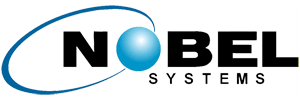
Nobel Systems’ successfully installed and launched a remote water pressure monitoring system for the City of Chirchiq in Uzbekistan. It is the largest project Nobel has contributed to in Central Asia.
The Asian Development Bank, as part of their hackathon challenge, contracted Nobel Systems to use Nobel’s GeoViewer Mobile and GeoViewer Online platform to manage Chirchiq’s water utility. GeoViewer loads GIS (Geographic Information System) data and allows the water utility to access a state-of-the-art GIS viewing platform. Nobel staff also connected Internet of Things (IoT) sensors in the city’s pipeline network.
The three systems helped the City reduce operational costs and manage vital infrastructure to improve sustainable water supply and operation costs.
How Chirchiq will Use GeoViewer
Nobel Systems equipped city staff with an iPad, preloaded with the city’s GIS data and the GeoViewer Mobile software, to allow working offline. City staff will also have the ability to add external data such as leak information and add or comment on existing GIS features. In addition, Nobel translated the GeoViewer system into Russian and Uzbek.

The city will also use Nobel’s IoT-based remote pressure monitoring system that integrates with the GIS platform. The scope of work called for the installation of 10 IoT devices throughout the city’s network.
Chirchiq has a population of more than 150,000 in the Tashkent region of Uzbekistan.
IoT-based Remote Pressure Monitoring System

Nobel Systems staff installed ten IoT devices in ten separate locations recommended by City of Chirchiq staff. The devices are fully operational and integrated with GeoViewer.
City staff can view the status of the devices at any time using GeoViewer. In addition, Nobel Systems has set up an alert system wherein if the pressure exceeds a threshold, an alert will be sent to city staff by SMS and through the Telegram App.
GIS / IoT Pilot Project for Uzbekistan
This pilot project is part of an overall goal for Uzbekistan to create a digital water utility that will automate all water supply and sewerage service business processes. The success of this project will lead to the development of the future Information and Communication Technologies (ICT) sector for Uzbekistan. UzSuvTaminot, the national water company of Uzbekistan, selected the City of Chirchiq as the beneficiary for the pilot study.
The Asian Development Bank (ADB) is a lead development partner in Uzbekistan’s urban and water sector, with more than $1 billion invested for 20 projects and 11.6 million beneficiaries. ADB’s primary strategic priorities and directions include improving water supply and sanitation coverage and services delivery, institutional reforms, asset management, O&M, operational efficiency, financial sustainability, and private sector participation as part of a holistic approach for water, sanitation, and integrated urban development.
ADB recognizes that water service delivery is poor in Uzbekistan due to inefficient operations, intermittent supply (typically 4 to 8 hours), low pressure, and poor-quality pipelines, posing a health risk with a disproportionate impact on women and the poor.
Non-revenue generating water service is estimated to be around 40% but is challenging to measure due to limited metering and intermittent supply. Therefore, Soviet-era infrastructure needs to be upgraded with modern solutions to improve operational efficiency, operation and maintenance, asset management, and build utility capacity to deliver high-quality water and sanitation services.
Adapting Digital Twin Capabilities
The pilot project directly contributes to the ADB’s digital twin initiatives. Under the digital twin program, ADB plans to set up digital twin platforms to monitor and help DMCs maintain ADB-funded infrastructure projects.
Implementing Nobel Systems’ GeoViewer utility management software in Uzbekistan will provide valuable feedback on the future implementation of digital twin technology.
Learn more about Nobel Systems that can streamline water utility management here.
Contact us to Learn More
